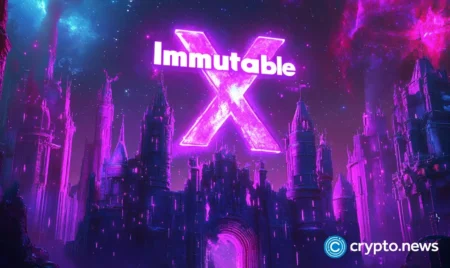Hearings on the Digital Asset Market Clarity Act took place on June 4, 2025. The bill is a bipartisan legislation clarifying the market structure for digital assets. Before the hearings, Democrats accused the Securities and Exchange Commission of withholding crucial info from them while providing it to Republicans. Will the political tensions stall innovation?
“The worst technical assistance briefing”
The SEC was thought to provide House members with consultations before the hearings. However, according to House Democrats, whose names are not disclosed, they were left out of the proper assistance. CoinDesk names Crypto Task Force’s Landon Zinda as the person who was selected to provide Democrats with consultations but ultimately proved unprepared to answer basic questions, despite having allegedly been sent relevant information beforehand. Some of the Democrat staffers referred to the meetings as the “worst technical assistance briefing.” One of the staffers said the following:
“This felt like they were trying to hide the ball. Some of them clearly didn’t understand the questions, and others refused to answer by claiming privilege.”
Democrats claim that the GOP members received a detailed written analysis from the SEC in private.
Democrats are afraid that the Clarity Act may minimize the control level for the crypto space by the SEC which may create additional risks for consumers and create a loophole allowing traditional finance companies to pose themselves as cryptocurrency businesses to escape from the SEC’s supervision.
What is the Clarity Act?
The legislation known as the Clarity Act was introduced in May. The bill comes across a series of regulatory efforts aimed at shaping a clear regulatory climate in the U.S. crypto sector. The Clarity Act aims to protect consumers, prevent U.S. innovators from fleeing the country, and encourage investors to fund U.S. crypto businesses.
During the Fox interview in May, Rep. French Hill, who introduced the bill, gave a brief description of the tasks the Clarity Act should solve. He said that America needs a high-standard USD-backed stablecoin and it should be outlined in the bill. Additionally, the bill should set a clear framework to distinguish between the crypto assets that should be treated as commodities and those treated as securities, etc. It should outline specific regulations for different types of cryptocurrency. On top of that, the Clarity Act is going to determine the crypto asset custody rules and methods.
During the hearings, there was a discussion surrounding the accountability of non-custodial platform developers which is a serious issue, given the cases of prosecution of the developers of such crypto mixers as Tornado Cash and Samourai Wallet.
A bill co-sponsor, Congressman Tom Emmer said that although the bill provides legal certainty for custodial entities, it is also important to determine if the non-custodial platform developers, “those who never touch users’ funds,” still face “potential questions of liability.” Then, he noted that if the developers are held liable, they may get discouraged from working in the U.S.
The Uniswap Labs CLO, Katherine Minarik, who participated in the hearings, responded by saying that non-custodial developers are not money transmitters, hence, they are not liable. She called stretching the money transmitter laws to non-custodial platforms a “profound threat” that has a “chilling effect” on developers.
Political tensions continue
Although the Trump Administration 2.0 took a fast pace in reshaping the cryptocurrency space in the U.S. with the support from both parties, Democrats and Republicans continue to have clashes in Congress and Senate.
Republicans look for a loose regulation that facilitates privacy and removes legal burdens that may be a problem for innovation. The uncertainty in the regulation of crypto has been a huge problem for years. It led to legal disputes and cancellations of ambitious projects (remember Facebook’s Libra/Diem). The GOP is working to make it easy in the U.S. to run a crypto business and use cryptocurrency for various needs.
Democrats are more cautious. They showcase a strict approach when it comes to crypto regulation. They demand more transparency to prevent the possible use of cryptocurrency for corruption and more control over the crypto sector in general, citing the protection of citizens from fraud and other risks as the reason for this approach.
In the Senate Democrats opposed the Genius Act, an important bill regulating stablecoins in the U.S. The reason for the opposition wasn’t a dislike for the stablecoin regulation, but rather a demand to verify if President Donald Trump’s cryptocurrency ventures (such as Official Trump memecoin) are lawful and address the conflict of interest. However, after additional work, Republicans managed to convince Democrats to support the bill.
It is not clear yet if Democrats make the U.S. transition into a crypto capital of the world safer or just slow it down. The fate of the Clarity Act will probably reveal it in the future.
Read the full article here










